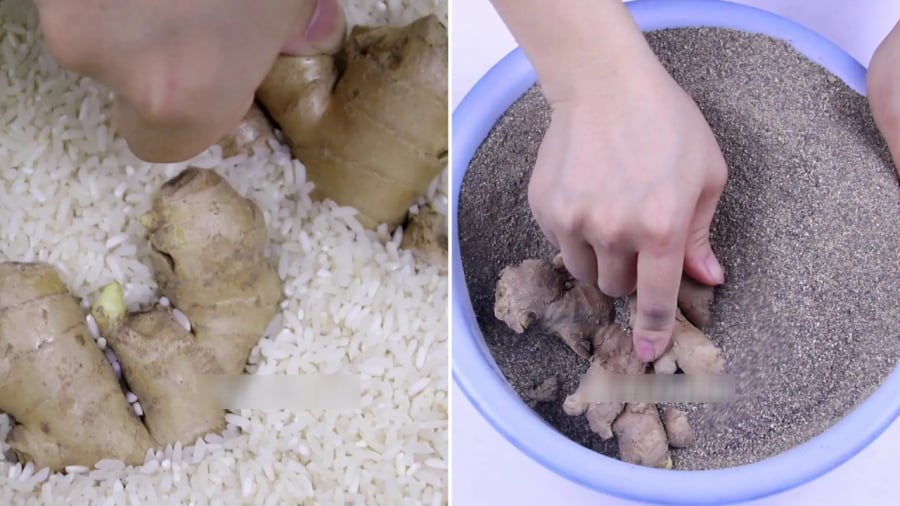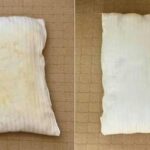Storing Ginger in a Rice Container
Rice is a staple in Asian households, and it can help keep ginger fresh for an extended period. To store ginger this way, choose older, denser ginger roots. Wash the ginger to remove any dirt or debris, then air-dry it completely. Alternatively, you can pat it dry with a clean cloth. Ensure there is no moisture left on the surface, as this can cause rot.
Once dry, simply bury the ginger in your rice container. Rice is excellent at absorbing moisture and creating a barrier against air exposure, preventing mold. Additionally, ginger has a strong, warm aroma that can repel insects, protecting your rice from pests. This method ensures the longevity of both your ginger and rice.
Storing Ginger in Sand
Another effective way to store ginger is by using sand. This method does not require refrigeration, yet it keeps ginger fresh for a long time. Prepare a clean, dry sand and a storage container. Spread a layer of sand at the bottom of the container, then place the ginger on top. Alternate layers of ginger and sand until all the ginger is used. Finally, cover the ginger completely with a final layer of sand. Keep the container in a cool, dry place.
The sand absorbs moisture, preventing the ginger from becoming moldy or rotten. Occasionally, remove the ginger to check for any spoilage and remove any affected pieces promptly. Ensure both the ginger and sand are completely dry to maximize the shelf life of the ginger.

Storing Ginger with Salt
Start by washing the ginger to remove any dirt. Prepare a brine solution by dissolving salt in water, then soak the ginger in this solution for about 10 minutes. Remove the ginger from the brine and air-dry it thoroughly in a well-ventilated area.
Once the ginger is completely dry, wrap each root individually in plastic wrap and store it in a cool, dry place. Salt has antibacterial properties that inhibit bacterial growth, preventing the ginger from spoiling. Wrapping the ginger in plastic wrap further reduces air exposure, prolonging its freshness.
For cut ginger, simply sprinkle some salt on the cut surface and store it in a dry place.
Storing Ginger with Baking Soda
Baking soda is known for its moisture-absorbing and antibacterial properties, making it ideal for preserving ginger. Line a storage container with old newspaper and sprinkle a layer of baking soda on top. Place a layer of ginger roots on the baking soda, then cover with another sheet of newspaper and sprinkle more baking soda. Repeat this process until all the ginger is used.
Finally, cover the ginger with newspaper and store it in a cool, dry place. This method can keep ginger fresh for up to three months.





































